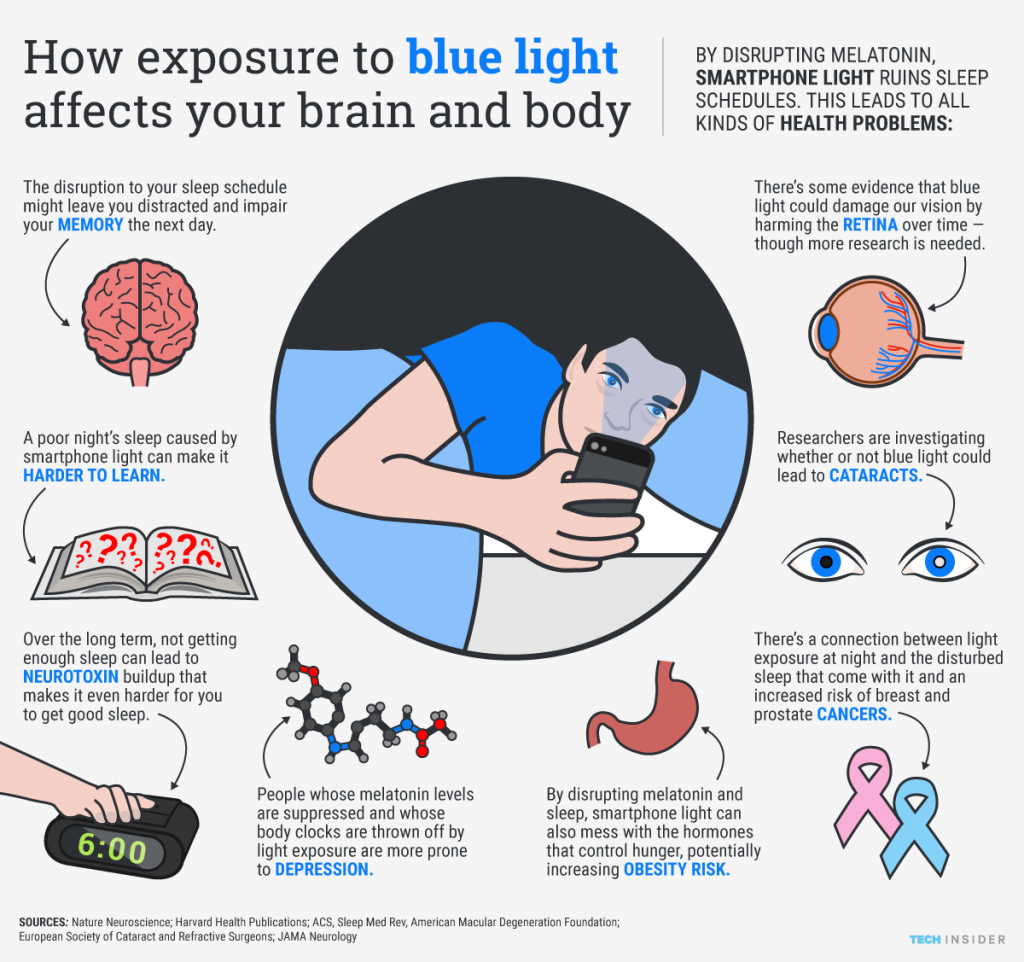
The Impact of Blue Light on Sleep: What Fitness Enthusiasts Need to Know
What is Blue Light?
Blue light is a high-energy, short-wavelength light that is emitted by many digital devices, including smartphones, tablets, computers, and LED lights. While natural blue light from the sun helps regulate our circadian rhythm during the day, excessive exposure to artificial blue light, especially at night, can disrupt our sleep-wake cycle.
How Blue Light Affects Sleep
Melatonin Suppression
One of the primary ways blue light impacts sleep is by suppressing the production of melatonin, the hormone responsible for regulating our sleep-wake cycle. Exposure to blue light in the evening can delay the release of melatonin, making it harder to fall asleep and potentially reducing sleep quality.Circadian Rhythm Disruption
Blue light exposure at night can throw off your body's natural circadian rhythm. This internal clock helps regulate various physiological processes, including sleep, hormone production, and metabolism. Disrupting this rhythm can lead to difficulties falling asleep and staying asleep.
Increased Alertness
Blue light has been shown to boost alertness and cognitive performance. While this can be beneficial during the day, it's counterproductive when you're trying to wind down for sleep. The increased alertness can make it challenging to relax and prepare for rest.
The Impact on Fitness and Recovery
For fitness enthusiasts, the effects of blue light on sleep can have significant implications:- Reduced Sleep Quality: Poor sleep quality can impair muscle recovery and growth, potentially hindering your fitness progress.
- Decreased Performance: Lack of quality sleep can lead to reduced athletic performance, slower reaction times, and decreased motivation.
- Hormonal Imbalances: Disrupted sleep patterns can affect hormone production, including those crucial for muscle growth and fat loss.
Strategies to Mitigate Blue Light's Effects
To protect your sleep and optimize your fitness results, consider implementing these strategies:- Use Blue Light Filtering Apps: Install apps on your devices that reduce blue light emission in the evening.
- Wear Blue Light Blocking Glasses: These specialized glasses can help filter out blue light, especially when using devices at night.
- Establish a Digital Curfew: Try to avoid screens for at least 2-3 hours before bedtime.
- Optimize Your Sleep Environment: Use dim, warm-colored lights in the evening and ensure your bedroom is dark for sleep.
- Increase Daytime Light Exposure: Expose yourself to plenty of natural light during the day to help regulate your circadian rhythm.



